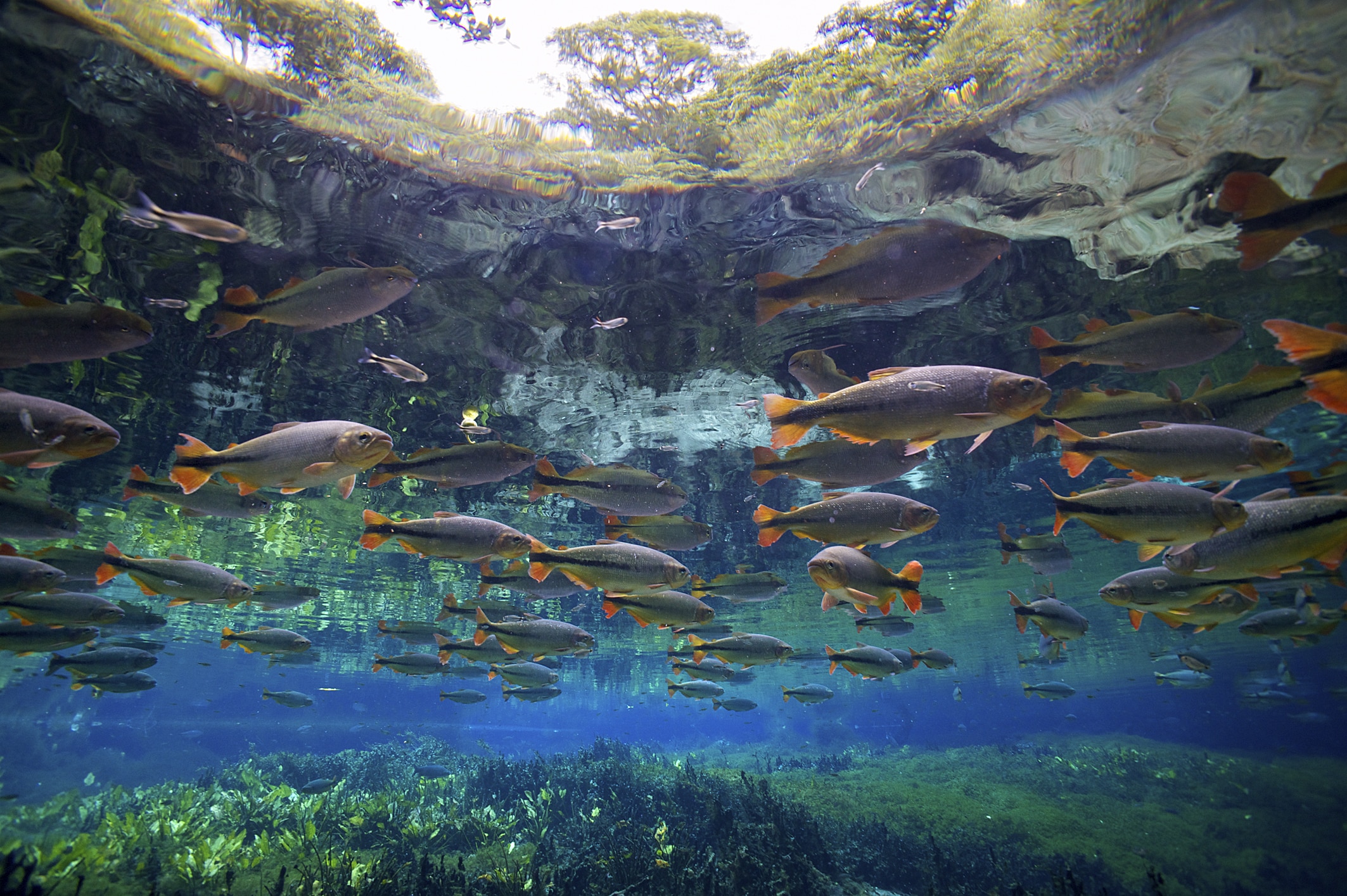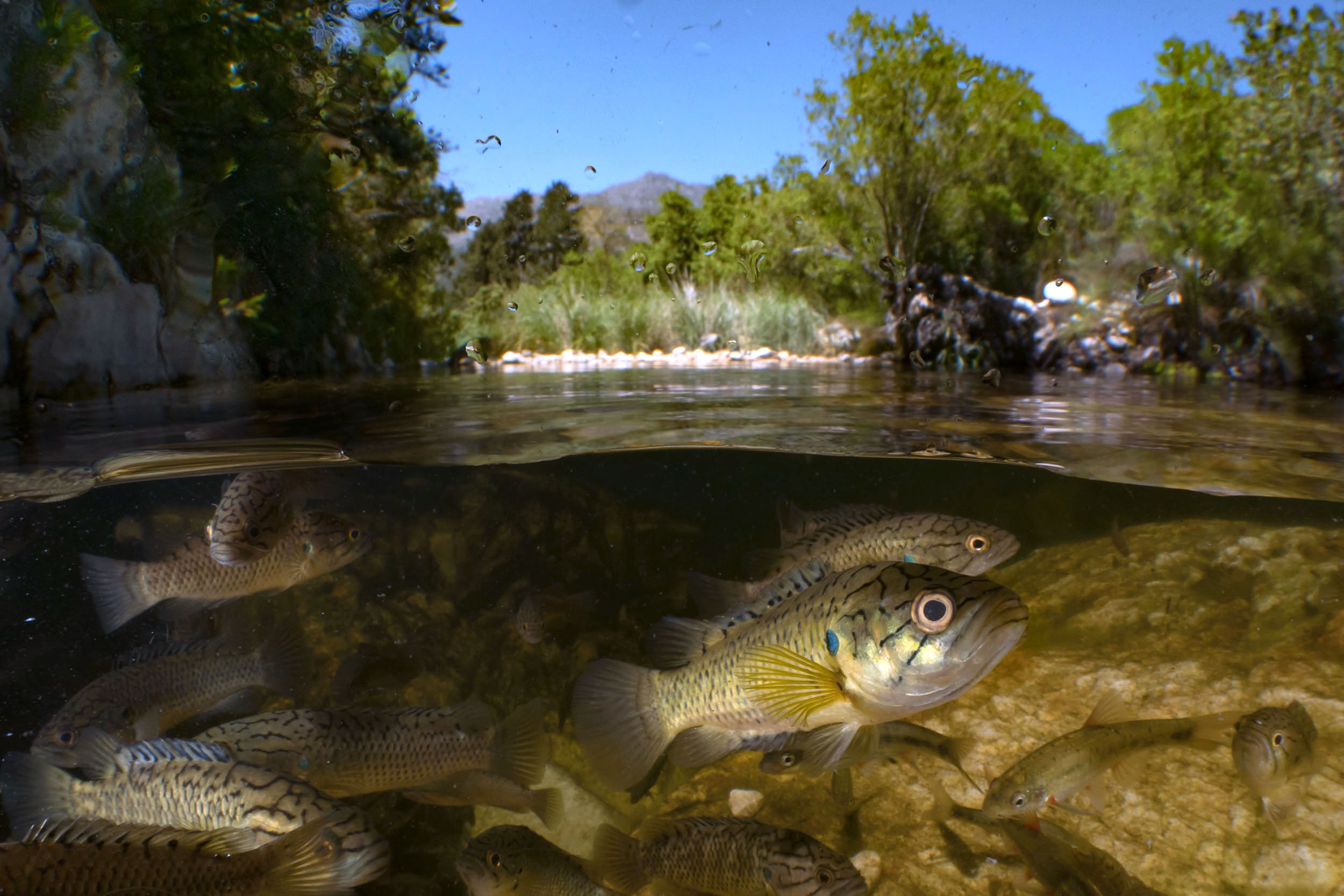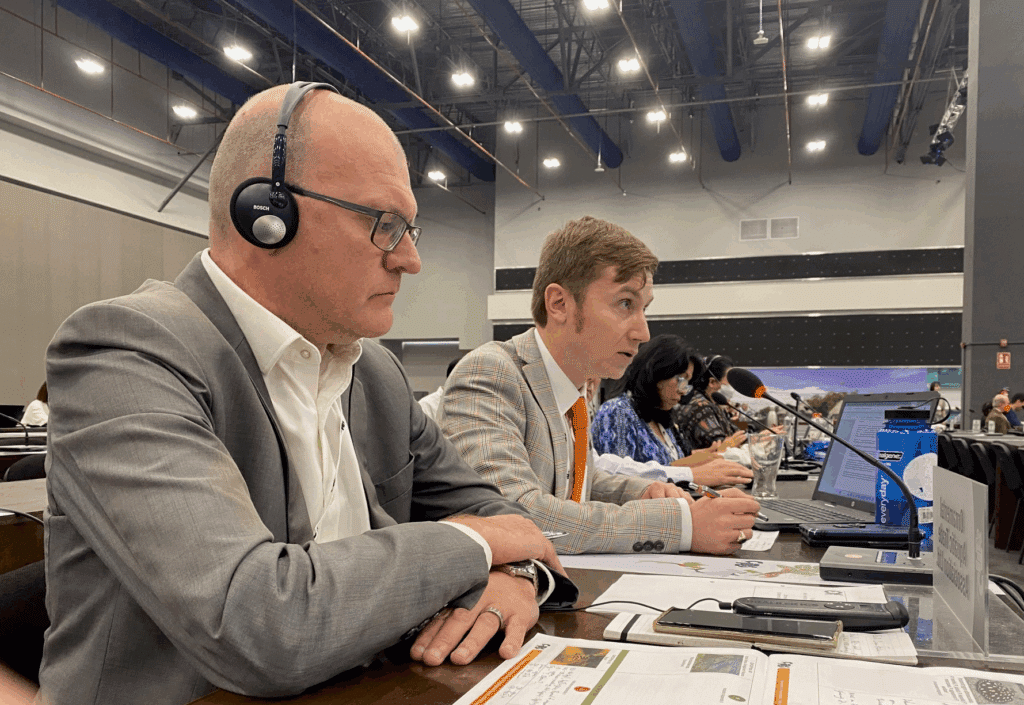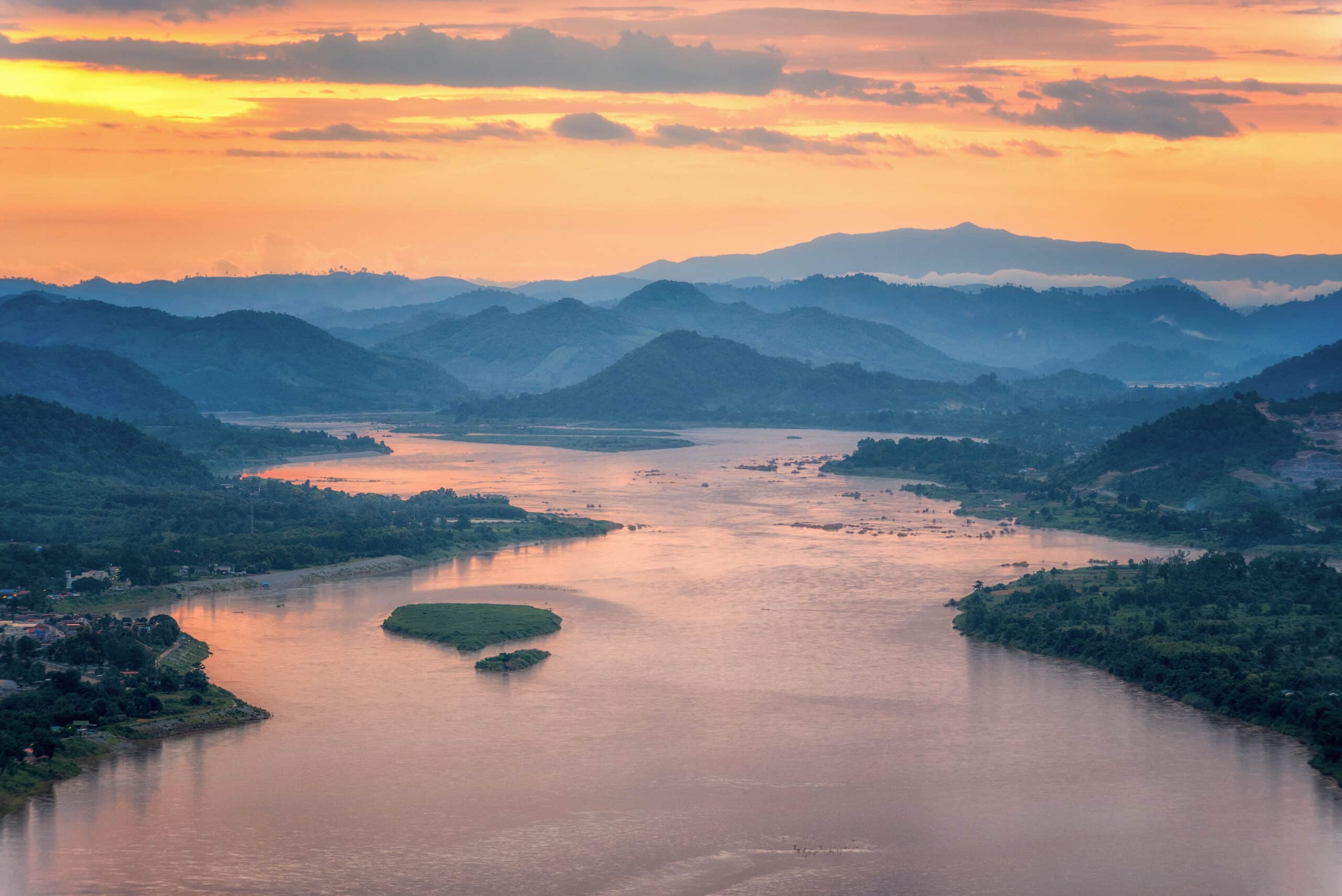A Krabi Mouth-Brooding Betta collected then released for population surveys conducted by BCST. © IUCN Asia
16 years ago, Mr Manaswut Chusaeng posted a picture of a fish he didn’t recognise on Panthip – a popular discussion forum in Thailand – requesting someone to help him identify the species. Despite the lack of response and not being able to find the fish again when he returned to the same spot, he took on a career as a tour guide in hopes of discovering the species through his work.
Today, the tiny fish – distinguished by its rounded fin, sometimes blueish gill, and males that incubate eggs in their mouth – is formally recognised as the Krabi Mouth-Brooding Betta. Listed as Critically Endangered on the IUCN Red List of Threatened Species™, this species can only be found in the crystal clear limestone karst streams and emerald pools of Krabi province, Thailand.
Among the risks that threaten their future is the conversion of their habitat to residential and agriculture areas, which can also be a source of pollution that affect the streams and pools where they occur. As tourism continues to ramp up in Thailand’s popular southern province, the natural landscape is being altered to increase accessibility for visitors. The Betta has also grown in popularity in the international trade market. “We see tourists collect them quite often, apparently one of these fish can sell for a lot of money,” said a community warden at one of emerald pools frequented by tourists.

In an effort to protect the Betta, the Bird Conservation Society of Thailand (BCST) – one of the oldest organisations conserving birds and nature in Thailand – are collaborating with national and local experts to conduct surveys to understand the population, distribution and the threats to the species. This is being implemented through the Engaging Communities To Safeguard the Simple Mouth Brooder (Betta simplex) In Krabi, Thailand project, supported by IUCN and the Critical Ecosystem Partnership Fund (CEPF) with technical support from SHOAL.
When BCST began looking for experts to form a local conservation committee for the Betta, Mr Chusaeng emerged as one of the leading figures. Having spent over a decade learning about them, he confidently leads the survey team to areas where the tiny Betta can be found within 10 minutes.

Findings from BCST’s data will be consolidated into a report, providing the first comprehensive account of the species. The report will include a series of recommendations to inform conservation plans. This includes defining protection areas, particularly where eggs are laid, as well as buffer and monitoring zones, to observe and learn more about their behaviour and population.
“I encourage collaboration between the local authority and community, especially to help understand how we can minimise our impact on the fish population,” said Mr Chusaeng. The report will include a community-based conservation strategy that helps all actors, from community members to the local government, understand their role in protecting Krabi’s endemic fish.
Mr Chusaeng has noticed a considerable difference in the attitude of locals in the last five years. As they learn more about the species, there’s growing interest to protect them. BCST are building on this momentum by running awareness raising campaigns to help the local community understand the ecological significance of the fish. With support from the local authority, they hope that the Krabi Mouth-Brooding Betta can be established as an icon and flagship for biodiversity conservation efforts in the province.

Krabi’s endemic Betta is one of many species that make the Indo-Burma region such a vibrant biodiversity hotspot. IUCN will continue to support organisations that work alongside communities to empower them with the tools and understanding to protect these unique species.
Mr Chusaeng also continues his plight to raise awareness and protect Krabi’s local treasure. “If they disappear from this area, then the planet will never see this species again,” he said. “It’s up to us to ensure this doesn’t happen.”

About CEPF
CEPF is a joint initiative of l’Agence Française de Développement, Conservation International, the European Union, Fondation Hans Wilsdorf, the Global Environment Facility, the Government of Canada, the Government of Japan and the World Bank. A fundamental goal is to ensure civil society is engaged in biodiversity conservation.


)
)
)

